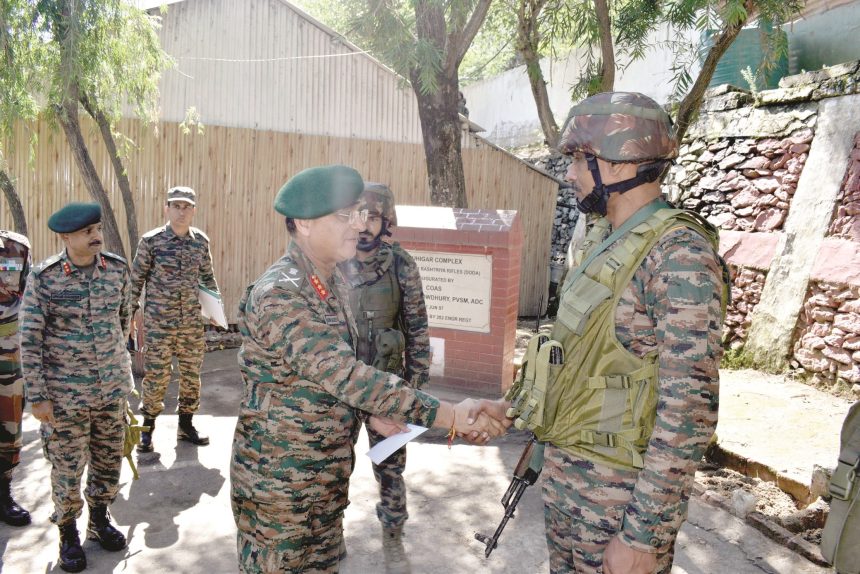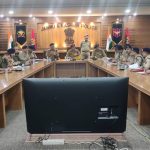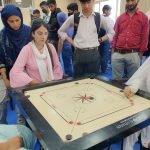Srinagar, Aug 31: As the Jammu and Kashmir Assembly elections draw near, the General Officer Commanding (GOC) of the White Knight Corps, Lt Gen Naveen Sachdeva, alongside GOC CIF Delta, Maj Gen Upkar Chander, conducted a comprehensive security review in the Doda-Kishtwar belt of the Jammu region on Monday. This assessment comes in the wake of evolving security challenges and heightened vigilance in the region.
An Army spokesman reported that the GOCs reviewed operational preparedness in the Suigarh and Patnazi sectors, with a focus on ensuring robust security measures ahead of the polls. The visit included an assessment of the Kaplas Kund Yatra, where the GOCs praised the troops for their professionalism and steadfastness during operations.
“The security forces are maintaining a heightened vigil, with aerial platforms being utilized for overwatch,” the spokesman added. During the visit, Lt Gen Sachdeva commended the troops’ operational readiness and urged them to maintain high morale and professionalism in the face of future challenges. He was also briefed on technology initiatives employed to enhance combat potential.
During the visit, Army Cdr complimented the troops and exhorted all ranks to maintain high morale and professionalism for future challenges.
The meeting, held against the backdrop of the upcoming elections, focused on addressing emerging security challenges and fortifying the existing security apparatus in the region. Senior Army officials highlighted the importance of strategic planning and proactive measures, including community engagement initiatives, to foster a secure environment.
“The meeting, held against the backdrop of evolving security dynamics in the region, delved into a comprehensive assessment of the prevailing internal security situation,” he said.
A senior Army officer said that the primary focus of this visit was to address emerging challenges and fortifying existing security apparatuses in the region.
“Key agenda items included a thorough review of recent security incidents, analysis of intelligence inputs, and strategic planning for pre-emptive measures. Additionally, attention was directed towards bolstering community engagement initiatives to foster a conducive environment for intelligence gathering and proactive countermeasures,” he added.
The Jammu and Kashmir Assembly elections are scheduled to be held in three phases on September 18, 25, and October 1, marking the first assembly elections in the region since the abrogation of Article 370. The state has a total of 90 assembly constituencies, with 7 seats reserved for Scheduled Castes (SCs) and 9 for Scheduled Tribes (STs). According to the Election Commission of India, there are 88.06 lakh eligible electors in Jammu and Kashmir.








